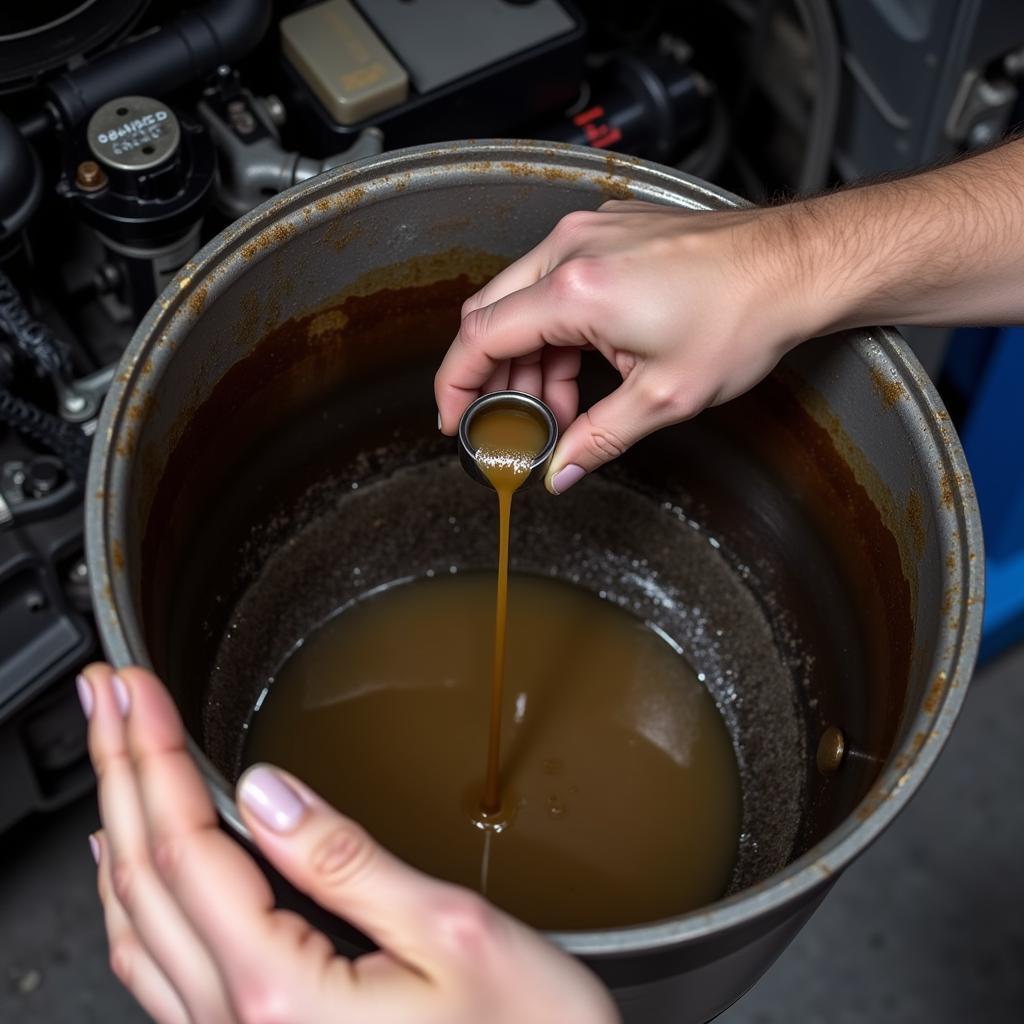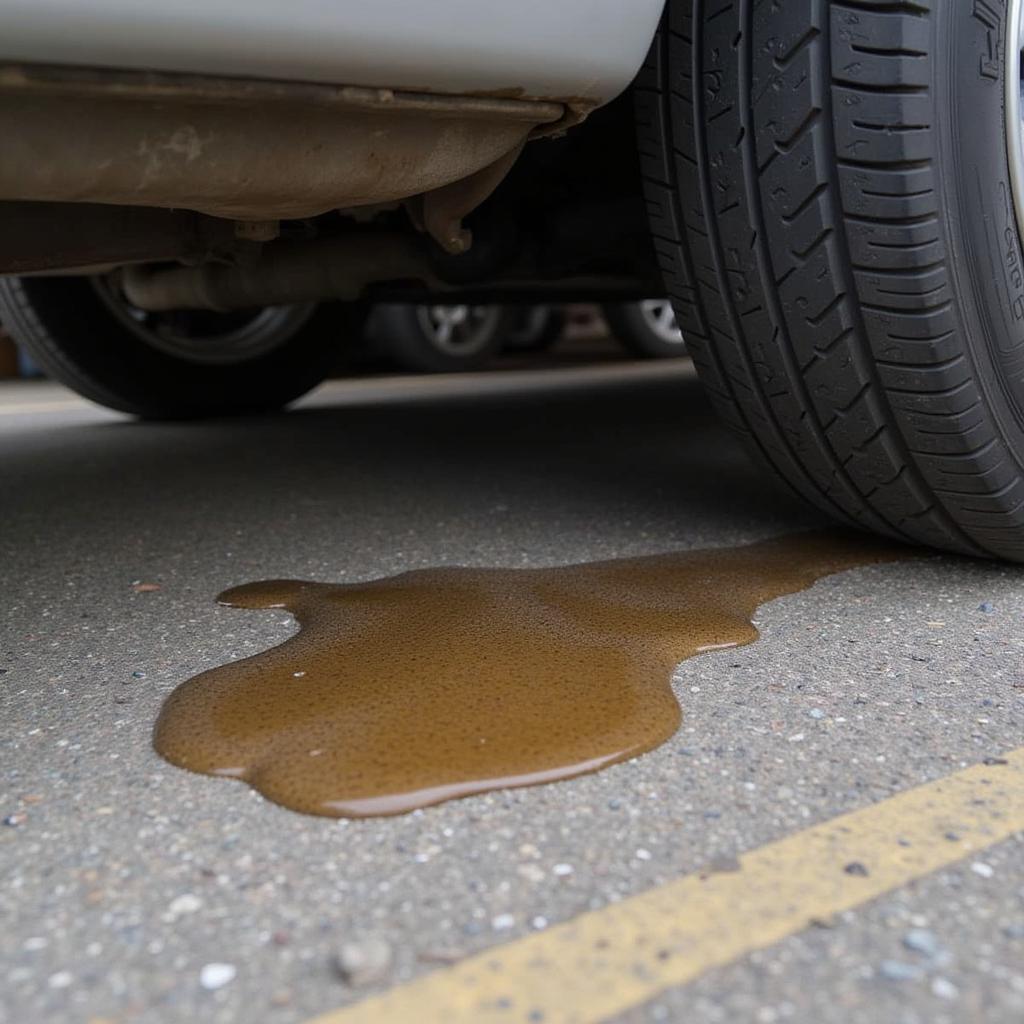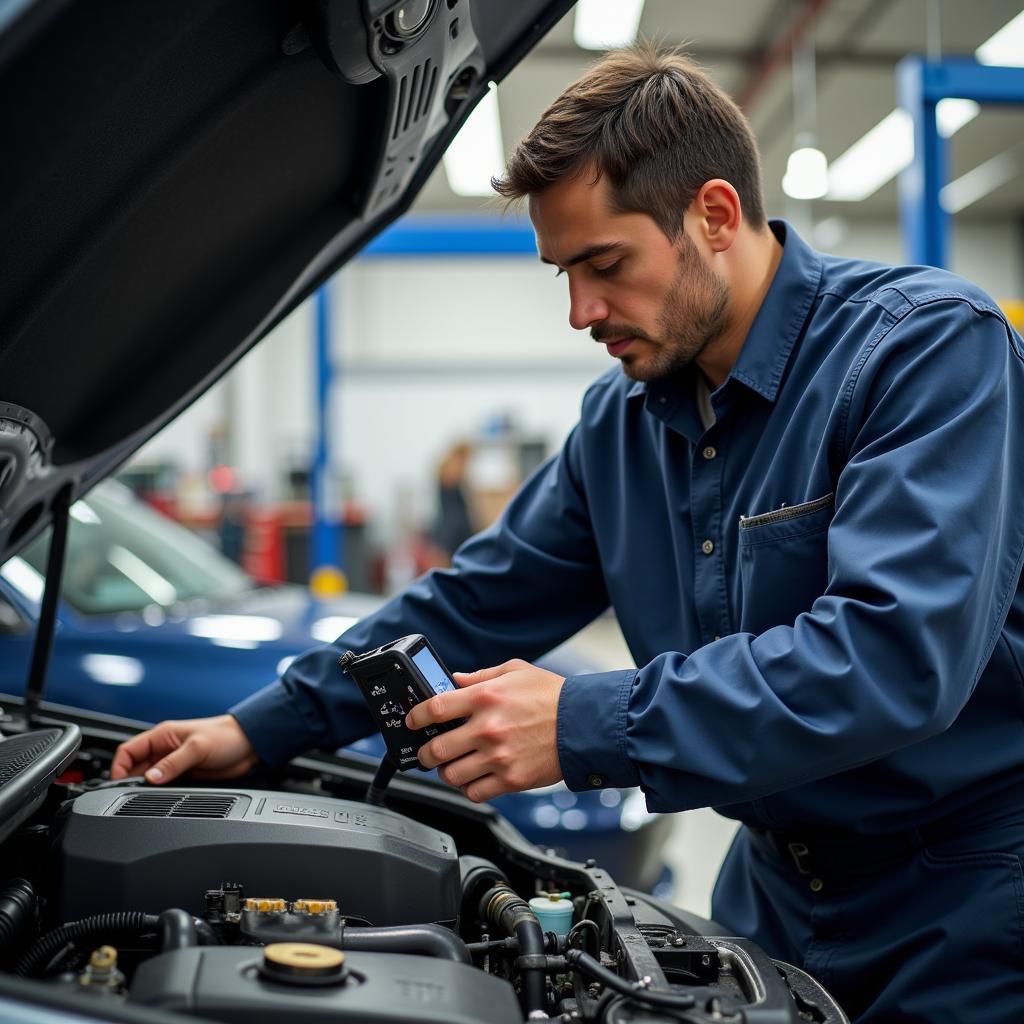What is Differential Service on a Car?
Differential service is crucial for maintaining your car’s drivetrain health and ensuring a smooth, safe driving experience. It’s often overlooked, but understanding what a differential service entails, why it’s necessary, and when to schedule it can save you from costly repairs down the road. We’ll delve into all aspects of differential service in this comprehensive guide.
A differential service, in simple terms, involves changing the fluid inside your vehicle’s differential. This specialized gear oil lubricates the gears within the differential, allowing them to rotate smoothly and transfer power to the wheels effectively. Neglecting this essential maintenance can lead to increased wear and tear, reduced fuel efficiency, and potentially catastrophic damage. Interested in more car services? Explore what to get serviced on your car.
The Importance of Differential Service
The differential plays a critical role in your vehicle’s ability to handle turns. It allows the wheels to rotate at different speeds, which is essential when navigating curves. Without a properly functioning differential, your tires would scrub and squeal during turns, causing premature wear and compromising handling. The differential fluid lubricates the intricate gears inside this component, reducing friction and heat, thus extending its lifespan.
Regular differential service also protects against costly repairs. Over time, the differential fluid can become contaminated with metal shavings and debris. This contamination can accelerate wear on the gears, leading to expensive replacements. A simple fluid change can prevent this damage and keep your differential operating smoothly. Curious about what constitutes a differential service? Find out more at what is a differential service in a car.
When to Service Your Car’s Differential
The recommended service interval for your differential varies depending on the vehicle’s make and model. Consult your owner’s manual for specific guidelines. However, a general rule of thumb is to have the differential fluid changed every 30,000 to 50,000 miles. If you frequently tow heavy loads or drive in extreme conditions, more frequent service may be necessary.
Ignoring the recommended service intervals can have serious consequences. Low fluid levels can lead to increased friction and heat, potentially causing damage to the gears. Contaminated fluid can also cause damage over time. Regular service helps prevent these problems and ensures the longevity of your differential.
What Happens During a Differential Service?
A differential service typically involves draining the old fluid, inspecting the magnetic drain plug for metal shavings (which can indicate wear), and refilling the differential with fresh fluid. Some mechanics may also choose to flush the differential to remove any remaining contaminants. Learn more about car differential service at what is differential service car.
 Mechanic Draining Old Differential Fluid
Mechanic Draining Old Differential Fluid
“Regular differential service is a small investment that can save you a lot of money in the long run,” says Alex Thompson, Senior Automotive Technician at Precision Auto Care. “It’s a simple procedure that can prevent major damage and keep your vehicle running smoothly.”
Signs Your Differential Needs Service
Several signs indicate your differential may need attention. These include:
- Whining or humming noises, especially during turns
- Grinding or clunking sounds
- Vibration in the drivetrain
- Difficulty turning
If you experience any of these symptoms, it’s essential to have your differential inspected by a qualified mechanic as soon as possible.
 Differential Fluid Leak Under a Car
Differential Fluid Leak Under a Car
“Catching these problems early is key,” adds Maria Sanchez, Lead Mechanic at Auto Solutions. “Ignoring these warning signs can lead to significant and expensive repairs down the road.”
Conclusion
Differential service is a vital part of maintaining your car’s overall health and performance. By understanding what it involves and scheduling it regularly, you can avoid costly repairs and ensure a smooth, safe driving experience. Remember to consult your owner’s manual for specific service intervals and don’t hesitate to contact a qualified mechanic if you notice any unusual noises or vibrations. Thinking about other car service needs? Check out why should i service the car ac.
FAQ
-
How often should I get my differential serviced? Consult your owner’s manual for specific recommendations, but generally every 30,000 to 50,000 miles.
-
What are the signs of a bad differential? Whining, humming, grinding, or clunking noises, vibrations, and difficulty turning.
-
What is included in a differential service? Typically, draining the old fluid, inspecting the drain plug, and refilling with fresh fluid.
-
Why is differential service important? It lubricates the gears, prevents wear and tear, and ensures proper function.
-
Can I service my differential myself? While possible, it’s best to have it done by a qualified mechanic.
-
How much does a differential service cost? Prices vary, but it’s typically less expensive than repairing a damaged differential.
-
What type of fluid does my differential need? Consult your owner’s manual for the correct fluid type and specifications.
Need help with your car services? Contact us via WhatsApp: +1(641)206-8880, Email: [email protected] or visit our workshop at 456 Oak Avenue, Miami, FL 33101, USA. Our customer service team is available 24/7.

